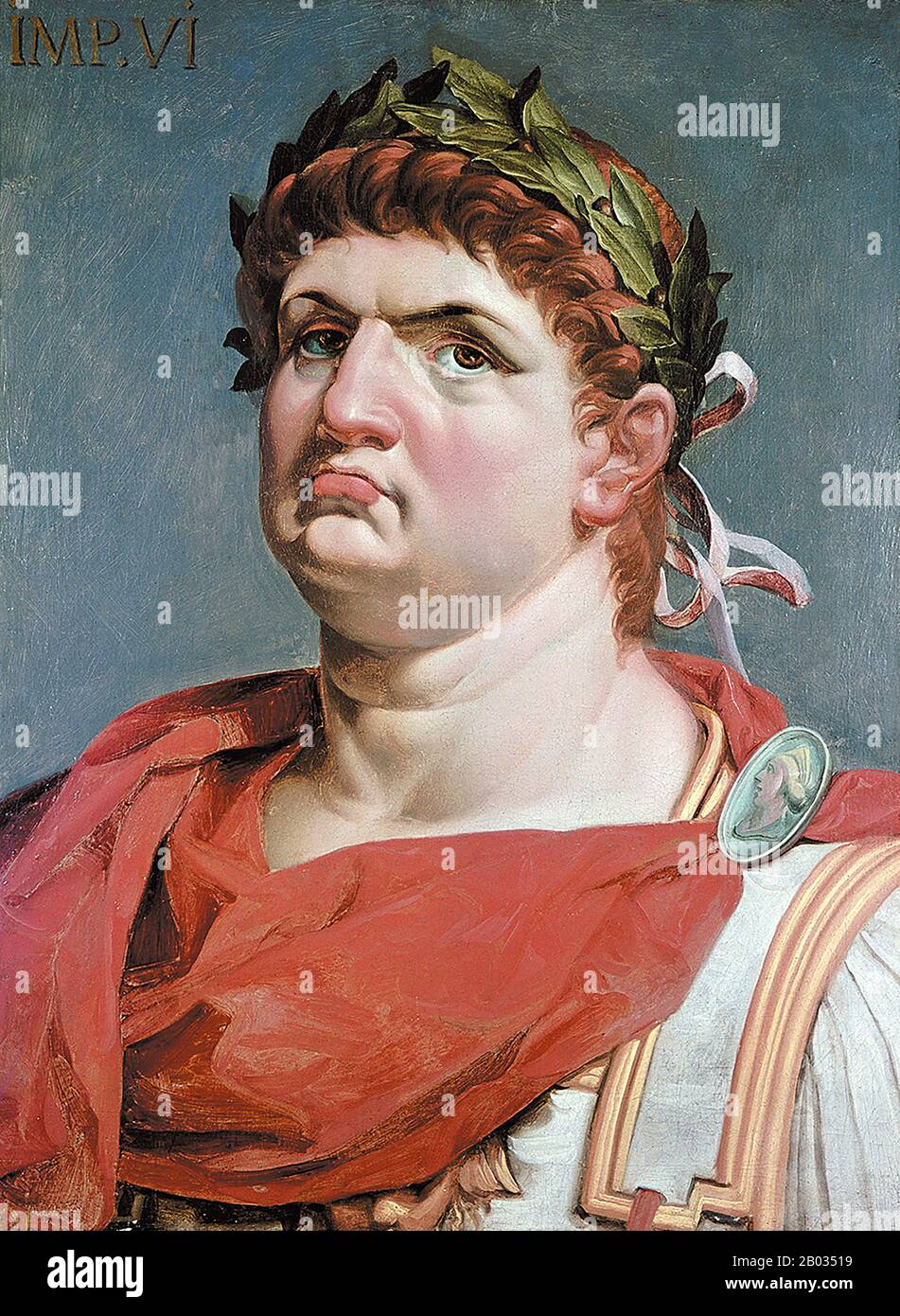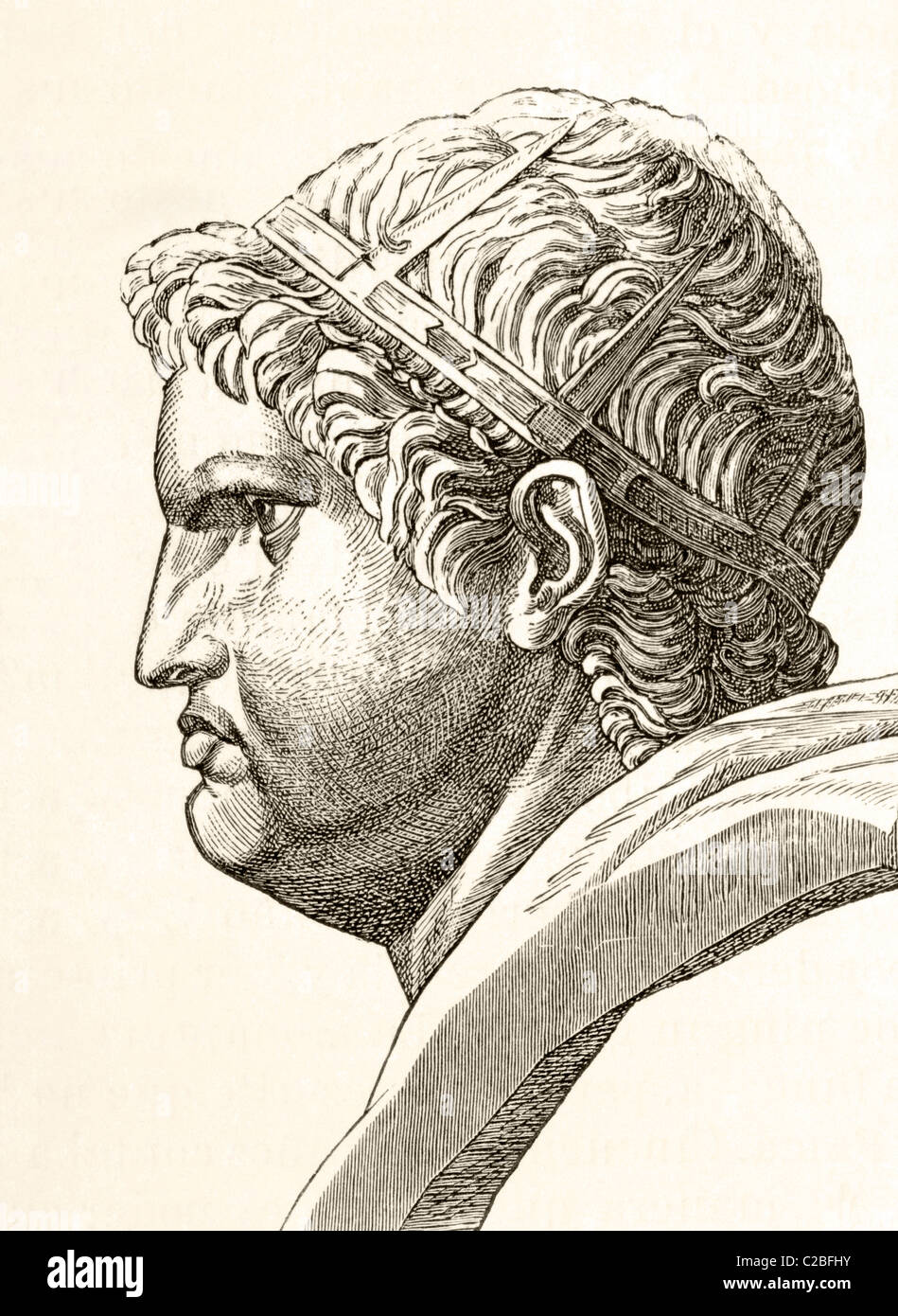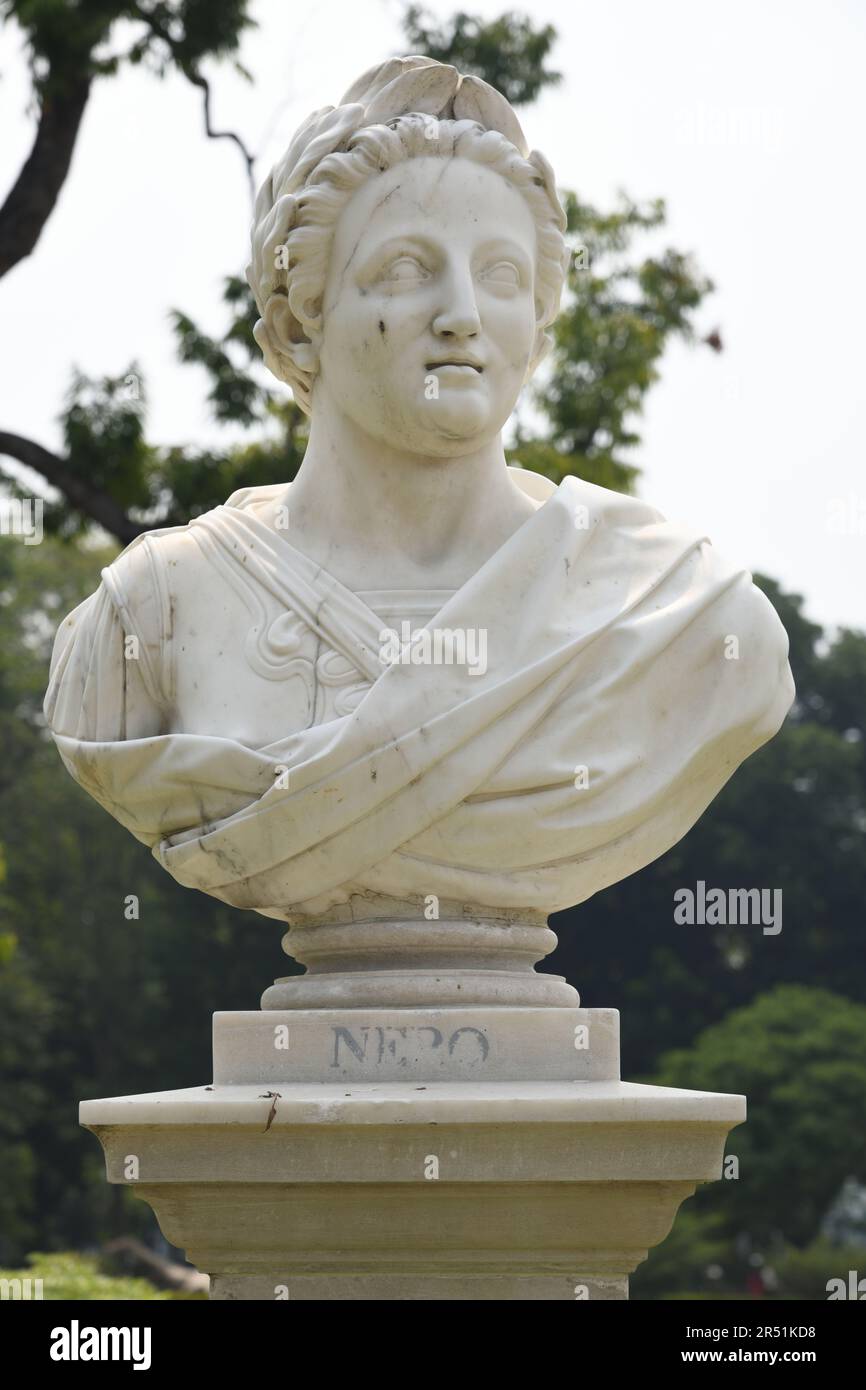
Welcome to the captivating and intricate world of ancient Rome! Today, we are embarking on an exploration of the life and times of a remarkable figure, Lucius Domitius Ahenobarbus. He was a prominent and influential individual during the chaotic and transformative period of the late Roman Republic. This era was marked by political strife, power struggles, and the rise of formidable leaders. If you have ever been curious about how one man could stand firm against the likes of the legendary Julius Caesar and the esteemed Pompey the Great, then you are in for an enlightening journey! Ahenobarbus’s story is one of ambition, conflict, and the relentless pursuit of power, set against the backdrop of a society on the brink of monumental change. Join us as we delve deeper into his life, examining the choices he made and the impact he had on the course of Roman history.
Who Was Lucius Domitius Ahenobarbus?

Born in 98 BC, Ahenobarbus emerged as a prominent figure within the ranks of the Optimates, the conservative faction of the Roman Senate that championed the interests of the aristocracy and sought to maintain the traditional power structures of the Republic. His life was characterized by a complex tapestry of political intrigue, military conflicts, and an unyielding ambition for power that often put him at odds with some of the most formidable leaders of his era. This raises an intriguing question: what motivated Ahenobarbus to confront such influential figures during a time of significant turmoil and transformation in Roman politics?
### The Early Years
Ahenobarbus’s formative years unfolded in a tumultuous environment where political alliances were notoriously unstable and often shattered at a moment’s notice. The Roman Republic was plagued by rampant corruption, factional disputes, and intense power struggles that created a volatile backdrop for his upbringing. From an early age, he was immersed in the intricate and often treacherous world of Roman politics, witnessing firsthand the cunning strategies and betrayals that would ultimately shape his own political ambitions and aspirations.
#### Political Aspirations
As Ahenobarbus matured, he cultivated a profound interest in the political landscape of Rome. He became increasingly committed to the principles espoused by the Optimates, advocating for the supremacy of the Senate and the preservation of traditional republican values over the rising ambitions of individual leaders who sought to consolidate power for themselves. However, one must ponder whether his dedication to these ideals stemmed from genuine conviction or if it was a calculated strategy designed to enhance his own influence and authority within the ever-shifting dynamics of Roman governance.
The Rise of the Triumvirate

In the year 60 BC, a significant transformation occurred within the political arena of Rome with the establishment of the First Triumvirate. This powerful coalition comprised three of the most influential figures of the time: Julius Caesar, Gnaeus Pompey, and Marcus Crassus. Their primary objective was to consolidate power and exert control over elections and legislative processes, effectively marginalizing the traditional authority of the Senate.
Amidst this shifting political landscape, one senator, Ahenobarbus, emerged as a vocal opponent of the Triumvirate. In 58 BC, he took a bold step by attempting to prosecute Caesar, a move that underscored his unwavering commitment to the senatorial cause. However, this action raised questions about his judgment—was he genuinely defending the Senate, or was he recklessly provoking a powerful adversary?
The political rivalry escalated further during Ahenobarbus’s campaign for the consulship in 55 BC. He made a daring promise to strip Caesar of his command in Gaul, a declaration that only served to heighten tensions between him and the Triumvirate. In response to Ahenobarbus’s ambitions, Caesar, Pompey, and Crassus maneuvered strategically to secure the consulship for themselves, effectively sidelining Ahenobarbus and diminishing his influence in the political sphere for the time being. This period marked a critical juncture in Roman politics, illustrating the fierce power struggles that characterized the late Republic.
Scandals and Setbacks

In the year 54 BC, Ahenobarbus finally realized his long-cherished ambition of becoming consul, sharing this prestigious position with his colleague, Appius Claudius Pulcher. However, his term in office was overshadowed by a significant election scandal that sent shockwaves throughout Rome. This scandal not only damaged Ahenobarbus’s reputation but also served as a stark illustration of the tumultuous and often unpredictable nature of Roman politics. It became evident that the pursuit of power in Rome was fraught with peril, where a single miscalculation or error could lead to catastrophic repercussions. The incident underscored the fragility of political alliances and the intense scrutiny under which public figures operated, reminding all involved that the stakes were incredibly high in the relentless game of power and influence.
The Civil War Begins

As tensions escalated, the Senate took drastic measures. In January 49 BC, after Pompey broke ties with Caesar, the Senate outlawed Caesar and appointed Ahenobarbus to replace him in Gaul. But this was just the beginning of a brutal civil war.
The Crossing of the Rubicon
When Caesar crossed the Rubicon River, he ignited a conflict that would change the course of Roman history. Ahenobarbus found himself in a precarious position, caught between loyalty to the Senate and the rising power of Caesar.
Battle of Corfinium
Against Pompey’s advice, Ahenobarbus attempted to halt Caesar’s advance at Corfinium. Unfortunately, he faced defeat and was captured. This was a pivotal moment—would he continue to fight, or would he seek a different path?
Resistance and Defeat

After his release, Ahenobarbus quickly organized resistance against Caesar in Massilia (modern-day Marseille). His determination was commendable, but the odds were stacked against him.
The Fall of Massilia
Despite his efforts, Massilia fell to Caesar’s forces. Ahenobarbus managed to escape, but his fortunes were dwindling. It was a classic case of “fighting a losing battle.”
Joining the Pompeians
In a last-ditch effort, Ahenobarbus allied himself with the Pompeians in Greece. But as history would have it, this alliance would lead to his ultimate downfall.
The Battle of Pharsalus

The decisive moment came at the Battle of Pharsalus in 48 BC. Ahenobarbus fought valiantly, but the tide of war was against him. What lessons can we learn from his final stand?
The Aftermath of Defeat
After the defeat, Ahenobarbus faced a grim reality. He attempted to flee but ultimately met his end in the chaos that followed. His story serves as a poignant reminder of the volatility of power and the consequences of ambition.
Legacy of Ahenobarbus

Lucius Domitius Ahenobarbus may not be a household name today, but his life encapsulates the struggles of the Roman Republic. His resistance against Caesar and the Triumvirate highlights the complexities of loyalty, power, and ambition.
Lessons from History
What can we take away from Ahenobarbus’s journey? Perhaps it’s the understanding that in politics, as in life, the stakes are high, and the outcomes are often unpredictable. His story is a testament to the idea that sometimes, the bravest battles are fought in the face of overwhelming odds.
Final Thoughts
As we reflect on the life of Ahenobarbus, let’s remember that history is not just about dates and events; it’s about the people who lived through them. Ahenobarbus’s legacy reminds us that every choice we make can lead to triumph or tragedy.
| Year | Event | Significance |
|---|---|---|
| 98 BC | Birth of Ahenobarbus | Born into a politically charged environment. |
| 60 BC | Formation of the First Triumvirate | Shift in power dynamics in Rome. |
| 49 BC | Crossing of the Rubicon | Start of the civil war. |
| 48 BC | Battle of Pharsalus | Decisive defeat for Ahenobarbus and the Pompeians. |

